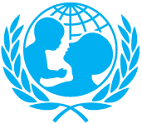Article 7
(Registration, name, nationality, care): All children have the right to a legally registered name,
officially recognised by the government. Children have the right to a nationality (to belong to a country).
Children also have the right to know and, as far as possible, to be cared for by their parents.
Article 8
(Preservation of identity): Children have the right to an identity – an official record of who they
are. Governments should respect children’s right to a name, a nationality and family ties.
Article 9
(Separation from parents): Children have the right to live with their parent(s), unless it is bad
for them. Children whose parents do not live together have the right to stay in contact with both parents,
unless this might hurt the child.
Article 10
(Family reunification): Families whose members live in different countries should be allowed
to move between those countries so that parents and children can stay in contact, or get back together as
a family.
Article 11
(Kidnapping): Governments should take steps to stop children being taken out of their own
country illegally. This article is particularly concerned with parental abductions. The Convention’s Optional
Protocol on the sale of children, child prostitution and child pornography has a provision that concerns
abduction for financial gain.
Article 12
(Respect for the views of the child): When adults are making decisions that affect children,
children have the right to say what they think should happen and have their opinions taken into account.
This does not mean that children can now tell their parents what to do. This Convention encourages
adults to listen to the opinions of children and involve them in decision-making -- not give children
authority over adults. Article 12 does not interfere with parents' right and responsibility to express their
views on matters affecting their children. Moreover, the Convention recognizes that the level of a child’s
participation in decisions must be appropriate to the child's level of maturity. Children's ability to form and
express their opinions develops with age and most adults will naturally give the views of teenagers
greater weight than those of a preschooler, whether in family, legal or administrative decisions.
Article 12
(Respect for the views of the child): When adults are making decisions that affect children
(Registration, name, nationality, care): All children have the right to a legally registered name,
officially recognised by the government. Children have the right to a nationality (to belong to a country).
Children also have the right to know and, as far as possible, to be cared for by their parents.
Article 8
(Preservation of identity): Children have the right to an identity – an official record of who they
are. Governments should respect children’s right to a name, a nationality and family ties.
Article 9
(Separation from parents): Children have the right to live with their parent(s), unless it is bad
for them. Children whose parents do not live together have the right to stay in contact with both parents,
unless this might hurt the child.
Article 10
(Family reunification): Families whose members live in different countries should be allowed
to move between those countries so that parents and children can stay in contact, or get back together as
a family.
Article 11
(Kidnapping): Governments should take steps to stop children being taken out of their own
country illegally. This article is particularly concerned with parental abductions. The Convention’s Optional
Protocol on the sale of children, child prostitution and child pornography has a provision that concerns
abduction for financial gain.
Article 12
(Respect for the views of the child): When adults are making decisions that affect children,
children have the right to say what they think should happen and have their opinions taken into account.
This does not mean that children can now tell their parents what to do. This Convention encourages
adults to listen to the opinions of children and involve them in decision-making -- not give children
authority over adults. Article 12 does not interfere with parents' right and responsibility to express their
views on matters affecting their children. Moreover, the Convention recognizes that the level of a child’s
participation in decisions must be appropriate to the child's level of maturity. Children's ability to form and
express their opinions develops with age and most adults will naturally give the views of teenagers
greater weight than those of a preschooler, whether in family, legal or administrative decisions.
Article 12
(Respect for the views of the child): When adults are making decisions that affect children
Online souce:
http://www.unicef.org/crc/files/Rights_overview









No comments:
Post a Comment